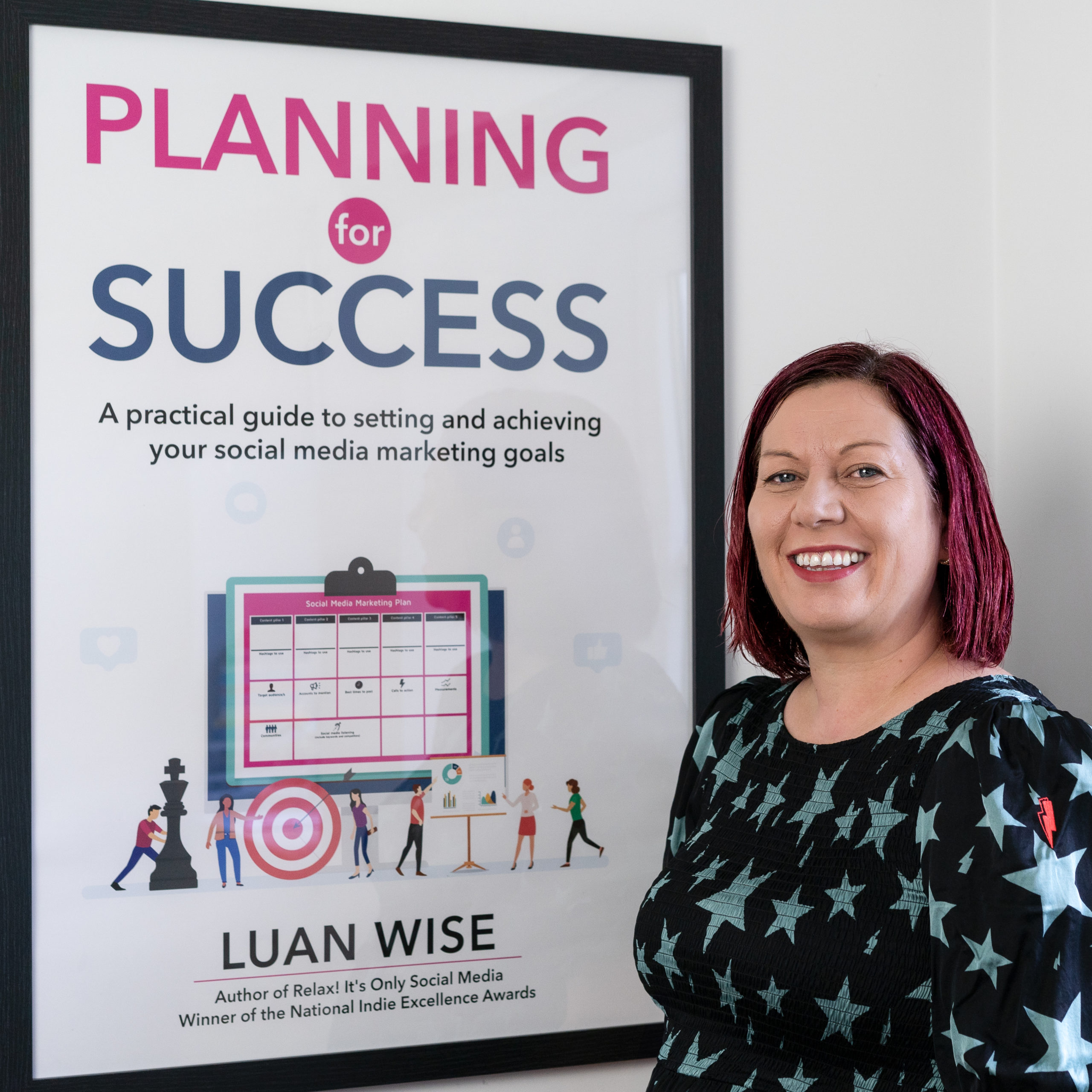Planning for Success: A practical guide to setting and achieving your social media marketing goals (available now from Amazon), is research-led. Responses from online questionnaires and qualitative interviews informed much of the content.
Here’s how the research, in collaboration with Warwick Business School, University of Warwick, started…
I met Professor Laura Chamberlain when an undergraduate marketing student invited me to speak to their marketing society about LinkedIn. From the moment we crossed paths, I’ve welcomed every opportunity to spend time with Laura, sharing thoughts, ideas and asking questions. If you have ever met Laura, you will know that a conversation can quickly turn into a project, and this is how our research collaboration started. Over a coffee, I updated Laura on my thinking for a second version of my book, Relax! It’s Only Social Media, and how I wanted to explore some of my client and training conversations in more depth. We opened our laptops and started to scope an idea to examine the use of social media in small and medium-sized organisations (SMEs).
The research proposal received approval from the University of Warwick Humanities & Social Sciences Research Ethics Committee in March 2020. We debated whether to proceed with the research at this time (as the world was heading into lockdown), and decided we should continue. Now, we appreciate our opportunity to obtain insights into the use of social media at such a pivotal time in our history. By May 2020, 238 marketers had provided anonymous responses to our online questionnaire. Participants were recruited using personal networks and via the research software company Qualtrics. The following criteria applied: aged over 18 and working in marketing at a UK-based organisation with 10–250 employees.
We also conducted ten qualitative interviews. For these, participants were recruited using personal networks. Thus, most interviewees were already known to the interviewers. Interviews were conducted using video-conferencing software and lasted for approx. twenty minutes. Participation was voluntary, and no incentives were provided. Any information obtained during the interviews remains confidential and any details used have been anonymised. In November 2022 we repeated the survey, using the same collection approach and criteria: 178 marketers provided anonymous responses to the online questionnaire, and ten qualitative interviews were undertaken. Between May 2020 and November 2022, five organisations completed surveys prior to social media training. These were completed by both marketers and non-marketers, and any details used have been anonymised.
In preparation for launching the book, I hosted a LinkedIn Live discussion with Laura to share highlights from the research.
To watch the full discussion, watch on YouTube:
Here’s the research findings we discussed:
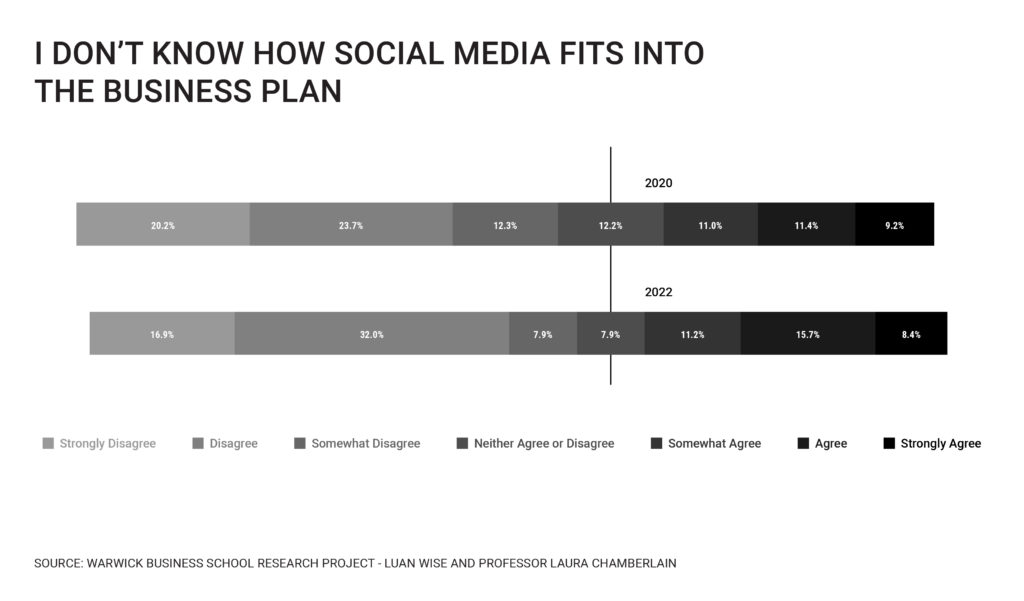
Just over half (56.2%) of the people we surveyed in 2020 said they understood how social media fitted into the business plan. Almost one-third (31.6%) stated that they did not understand how social media fitted into their organisation’s business plan, and 12.2% were unsure. Two years later, we see a shift of uncertainty from 12.3% to 7.9% of respondents who ‘neither agree or disagree’ with the same question. This is a key area of concern, as it’s essential to align social media objectives with the overall business plan. My experience in delivering social media training has shown that there is often a lack of communication about the business plan, so alignment (or not) could be due to a lack of knowledge about the plan when setting social media objectives. Understanding your organisation’s big picture strategy, and asking to see the business plan when building your social media marketing plan is essential.
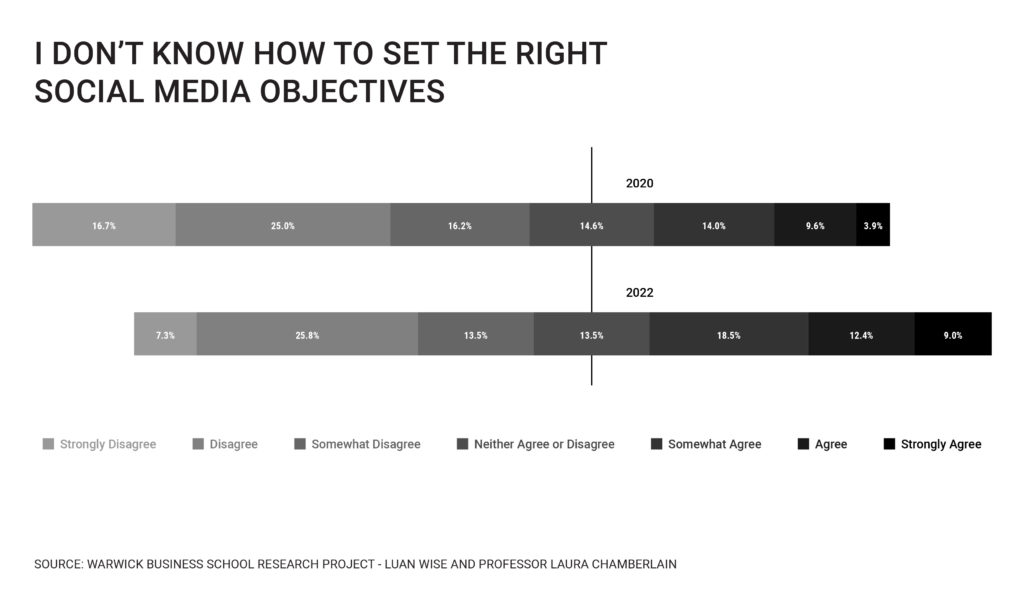
Setting objectives isn’t easy. Our research data indicates some uncertainty about how to determine the right objectives for social media. By ‘right’, we mean setting objectives that are aligned with the overall goals with the business and provide a clear direction for social media marketing efforts. In 2020, 57.9% of respondents said they knew how to set the right social media objectives; in 2022, however, this had decreased to under half (46.6%) of respondents. In 2022, 39.9% of respondents said that they didn’t know how to set the right social media objectives, an increase from 27.5% in 2020. Others stated that they were uncertain how to set the right social media objectives: 14.6% in 2020 and 13.5% in 2022.
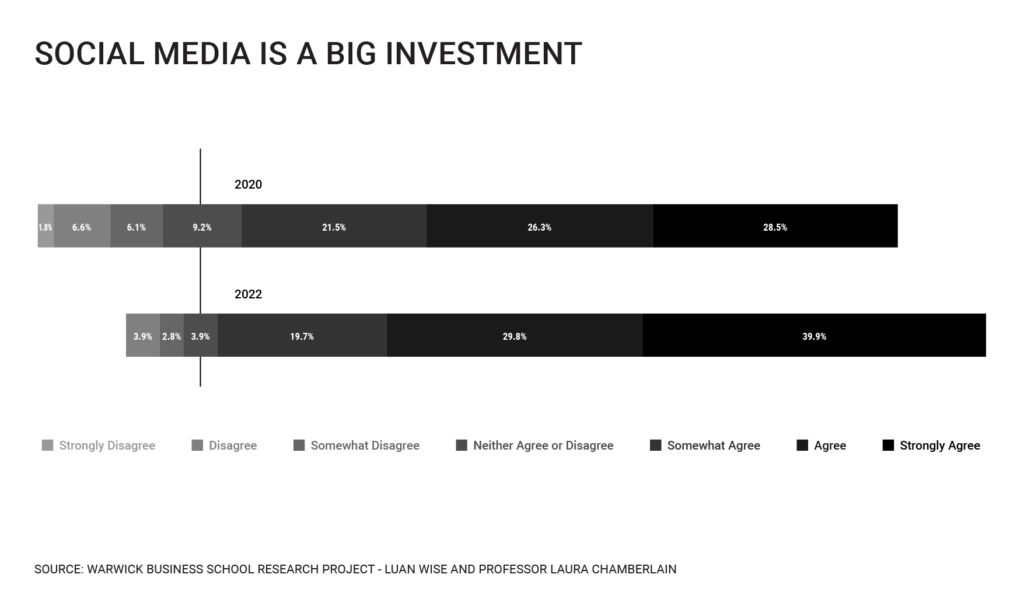
In 2020 76.3% agreed that it was a big investment, with 8.4% disagreeing or strongly disagreeing. 2022 saw an increase to 89.4% of respondents in agreement, with 6.7% disagreeing or strongly disagreeing. When we’re investing so heavily in social media, we need to ensure that our actions are working and having awe are making an impact; achieving our objectives, – and that they are in alignment with our business plan. We need to measure performance, and report to key stakeholders.
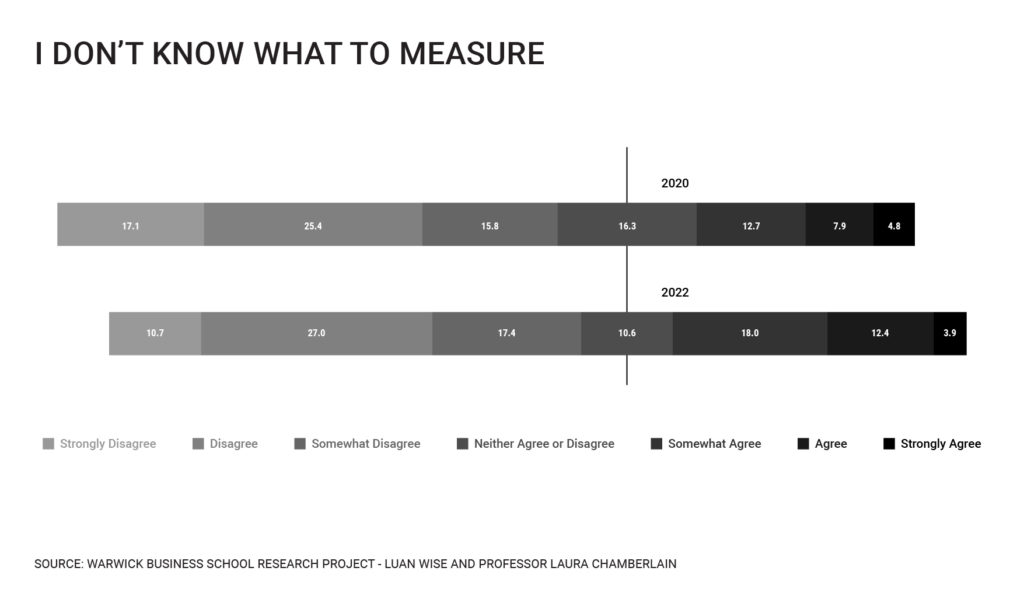
When we asked respondents to our online questionnaire about knowing what to measure, over half (58.9% in 2020 and 55.1% in 2022) did know what to measure. However, this also means that just under half didn’t know what to measure, which corresponds with the response to the question about knowing how to set the right social media objectives
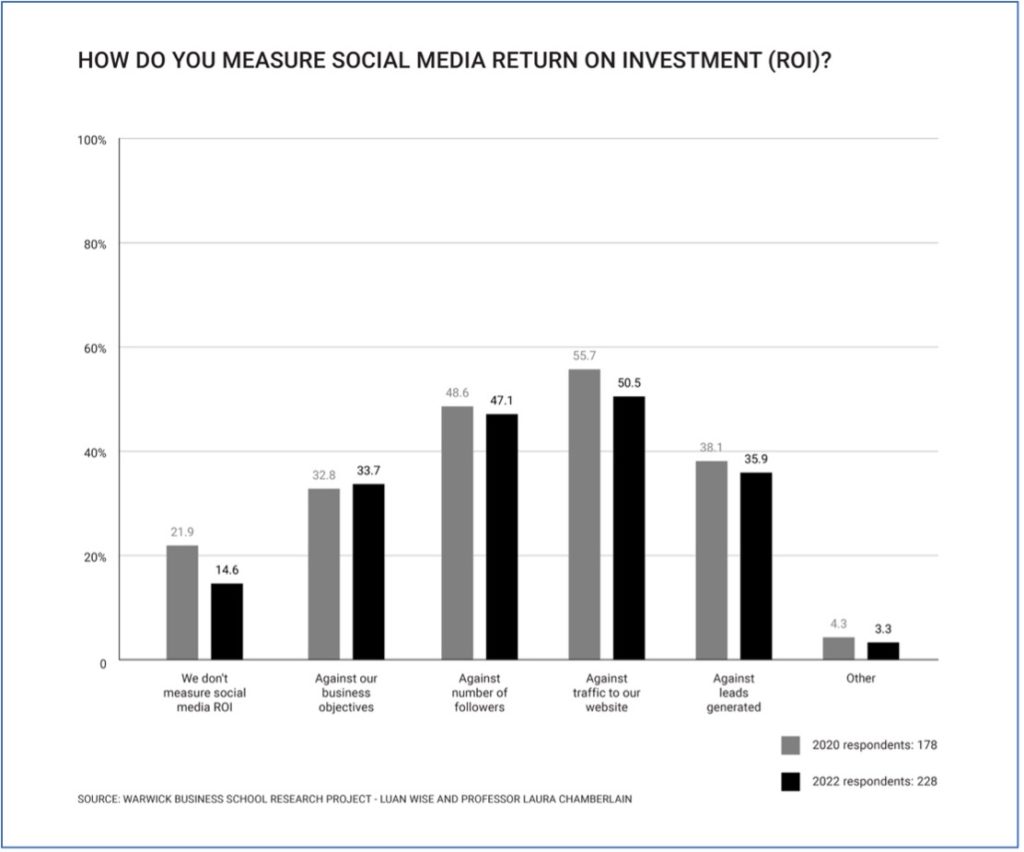
We asked, ‘How do you measure social media return on investment?’ and discovered that fewer people measured ROI in 2022 than in 2020. Respondents were able to select more than one answer to this question. The most popular response was to measure ROI by traffic, followed by number of followers, then leads generated. ‘Measurement against objectives’ saw the only increase between 2020 and 2022, but was the answer for just a third of respondents.

